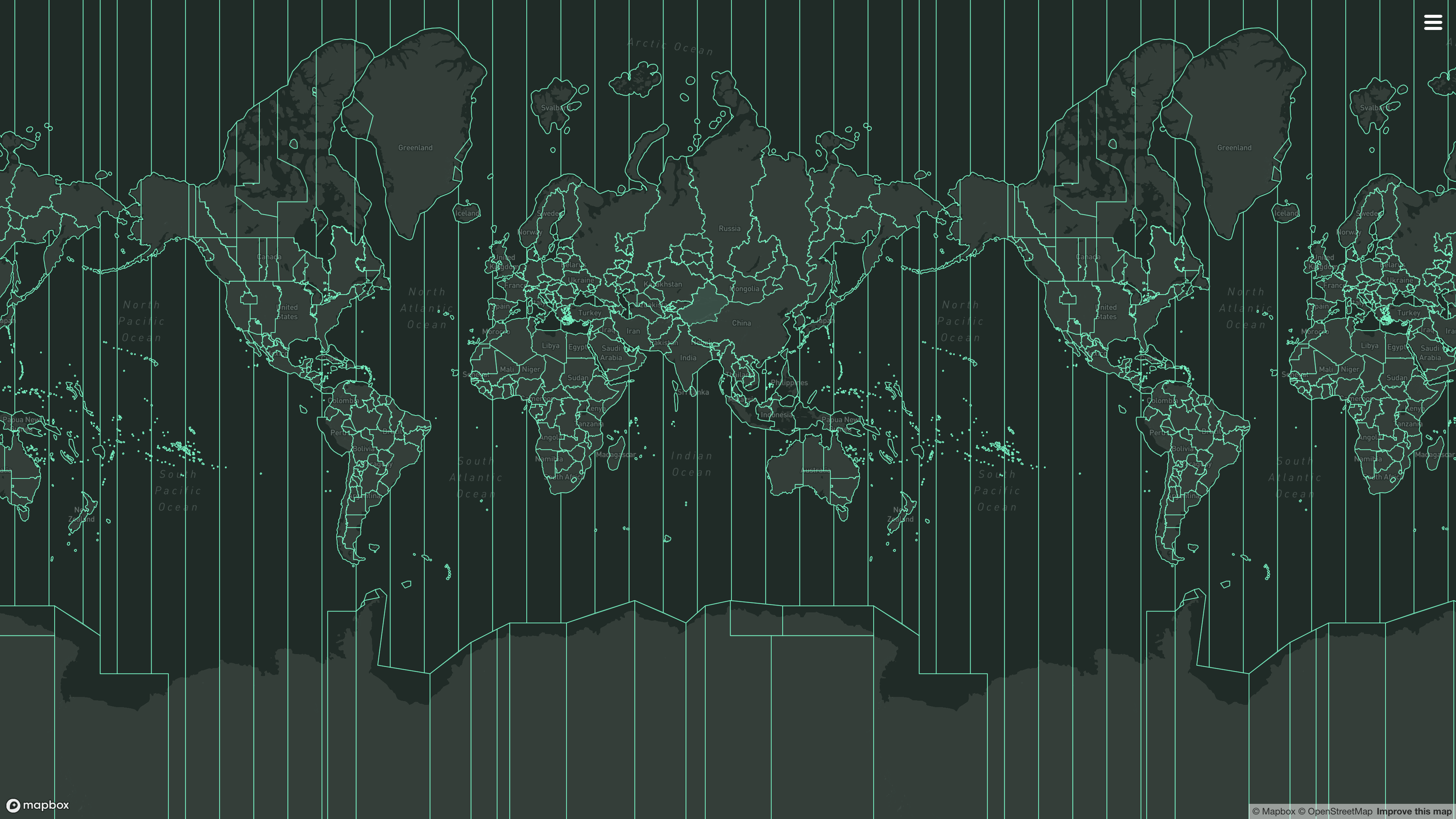https://github.com/ringsaturn/tzfpy
Probably the fastest Python package to convert longitude/latitude to timezone name.
https://github.com/ringsaturn/tzfpy
gps-location latitude longitude python python-library rust timezone timezone-library timezone-picker tzf
Last synced: 24 days ago
JSON representation
Probably the fastest Python package to convert longitude/latitude to timezone name.
- Host: GitHub
- URL: https://github.com/ringsaturn/tzfpy
- Owner: ringsaturn
- License: mit
- Created: 2022-11-21T11:14:13.000Z (over 2 years ago)
- Default Branch: main
- Last Pushed: 2025-05-14T12:57:44.000Z (26 days ago)
- Last Synced: 2025-05-15T21:06:08.738Z (25 days ago)
- Topics: gps-location, latitude, longitude, python, python-library, rust, timezone, timezone-library, timezone-picker, tzf
- Language: Python
- Homepage: https://pypi.org/project/tzfpy/
- Size: 419 KB
- Stars: 100
- Watchers: 1
- Forks: 4
- Open Issues: 1
-
Metadata Files:
- Readme: README.md
- Funding: .github/FUNDING.yml
- License: LICENSE
Awesome Lists containing this project
README
# tzfpy
- [](https://pypi.org/project/tzfpy/)
- [](https://pypi.org/project/tzfpy/)
- 
- [](https://anaconda.org/conda-forge/tzfpy)
- 
- 

> [!NOTE]
>
> 0. It's probably the fastest Python package to convert longitude/latitude to
> timezone name.
> 1. This package use a simplified polygon data and not so accurate around
> borders.
> 2. Rust use lazy init, so first calling will be a little slow.
> 3. Use about 40MB memory.
> 4. It's tested under Python 3.9+.
> 5. Try it online:
> - , powered by tzf-rs and
> WebAssembly
## Usage
Please note that new timezone names may be added to tzfpy, which could be
incompatible with old version package like pytz or tzdata. As an option, tzfpy
supports install compatible version of those packages with extra params.
```bash
# Install just tzfpy
pip install tzfpy
# Install with pytz
pip install "tzfpy[pytz]"
# Install with tzdata. https://github.com/python/tzdata
pip install "tzfpy[tzdata]"
# Install via conda, see more in https://github.com/conda-forge/tzfpy-feedstock
conda install -c conda-forge tzfpy
```
```python
>>> from tzfpy import get_tz, get_tzs
>>> get_tz(116.3883, 39.9289) # in (longitude, latitude) order.
'Asia/Shanghai'
>>> get_tzs(87.4160, 44.0400) # in (longitude, latitude) order.
['Asia/Shanghai', 'Asia/Urumqi']
```
### Best practices
1. Always install tzfpy with `tzdata` extra: `pip install tzfpy[tzdata]`
2. Use Python's zoneinfo package(`import zoneinfo`, aka
[`tzdata` in PyPI](https://pypi.org/project/tzdata/)) to handle timezone
names, even if you are using arrow:
[`examples/tzfpy_with_datetime.py`](examples/tzfpy_with_datetime.py):
```python
from datetime import datetime, timezone
from zoneinfo import ZoneInfo
from tzfpy import get_tz
tz = get_tz(139.7744, 35.6812) # Tokyo
now = datetime.now(timezone.utc)
now = now.replace(tzinfo=ZoneInfo(tz))
print(now)
# 2025-04-29 01:33:56.325194+09:00
```
[`examples/tzfpy_with_arrow.py`](examples/tzfpy_with_arrow.py):
```python
from zoneinfo import ZoneInfo
import arrow
from tzfpy import get_tz
tz = get_tz(139.7744, 35.6812) # Tokyo
arrow_now = arrow.now(ZoneInfo(tz))
print(arrow_now.format("YYYY-MM-DD HH:mm:ss ZZZ"))
# 2025-04-29 01:33:56.325194+09:00
```
If you are using whenever, since whenever use tzdata internally, so it's
compatible with tzfpy:
[`examples/tzfpy_with_whenever.py`](examples/tzfpy_with_whenever.py):
```python
from whenever import Instant
from tzfpy import get_tz
now = Instant.now()
tz = get_tz(139.7744, 35.6812) # Tokyo
now = now.to_tz(tz)
print(now)
# 2025-04-29T10:33:28.427784+09:00[Asia/Tokyo]
```
## Performance
Benchmark runs under
[`v1.0.0`](https://github.com/ringsaturn/tzfpy/releases/tag/v1.0.0) on my
MacBook Pro with Apple M3 Max.
```bash
pytest --benchmark-warmup=on --benchmark-warmup-iterations=100 tests/test_bench.py
```
```
-------------------------------------------------------------- benchmark: 1 tests --------------------------------------------------------------
Name (time in ns) Min Max Mean StdDev Median IQR Outliers OPS (Kops/s) Rounds Iterations
------------------------------------------------------------------------------------------------------------------------------------------------
test_tzfpy_random_cities 895.7926 11,420.8087 2,597.6093 1,331.8472 2,337.5032 1,587.5907 11611;1000 384.9694 33614 10
------------------------------------------------------------------------------------------------------------------------------------------------
Legend:
Outliers: 1 Standard Deviation from Mean; 1.5 IQR (InterQuartile Range) from 1st Quartile and 3rd Quartile.
OPS: Operations Per Second, computed as 1 / Mean
Results (2.03s):
1 passed
```
Or you can view more benchmark results on
[GitHub Action summary page](https://github.com/ringsaturn/tzfpy/actions/workflows/Test.yml).
More benchmarks compared with other packages can be found in
[ringsaturn/tz-benchmark](https://github.com/ringsaturn/tz-benchmark).
## Background
`tzfpy` was originally written in Go named [`tzf`][tzf] and use CGO compiled to
`.so` to be used by Python. Since `v0.11.0` it's rewritten in Rust built on PyO3
and [`tzf-rs`][tzf-rs], a tzf's Rust port.
I have written an article about the history of tzf, its Rust port, and its Rust
port's Python binding; you can view it
[here](https://blog.ringsaturn.me/en/posts/2023-01-31-history-of-tzf/).
[tzf]: https://github.com/ringsaturn/tzf
[tzf-rs]: https://github.com/ringsaturn/tzf-rs
## Compare with other packages
Please note that directly compare with other packages is not fair, because they
have different use cases and design goals, for example, the precise.
### [TimezoneFinder](https://github.com/jannikmi/timezonefinder)
I got lots of inspiration from it. Timezonefinder is a very good package and
it's mostly written in Python, so it's easy to use. And it's much
[more widely used](https://github.com/jannikmi/timezonefinder/network/dependents)
compared with tzfpy if you care about that.
However, it's slower than tzfpy, especially around the borders, and I have lots
of API requests from there. That's the reason I created tzf originally. And then
tzf-rs and tzfpy.
### [pytzwhere](https://github.com/pegler/pytzwhere)
I recommend to read timezonefinder's
[Comparison to pytzwhere](https://timezonefinder.readthedocs.io/en/latest/3_about.html#comparison-to-pytzwhere)
since it's very detailed.
## Contributing
Install:
- [Rust](https://www.rust-lang.org/tools/install)
- [Python](https://www.python.org/downloads/)
- [uv](https://docs.astral.sh/uv/)
```console
Available commands:
build - Build the project using uv
fmt - Format the code using ruff
lint - Lint the code using ruff
sync - Sync and compile the project using uv
lock - Lock dependencies using uv
upgrade - Upgrade dependencies using uv
all - Run lock, sync, fmt, lint, and test
test - Run tests using pytest
```
```bash
make all
```
## LICENSE
This project is licensed under the [MIT license](./LICENSE). The data is
licensed under the
[ODbL license](https://github.com/ringsaturn/tzf-rel/blob/main/LICENSE), same as
[`evansiroky/timezone-boundary-builder`](https://github.com/evansiroky/timezone-boundary-builder)